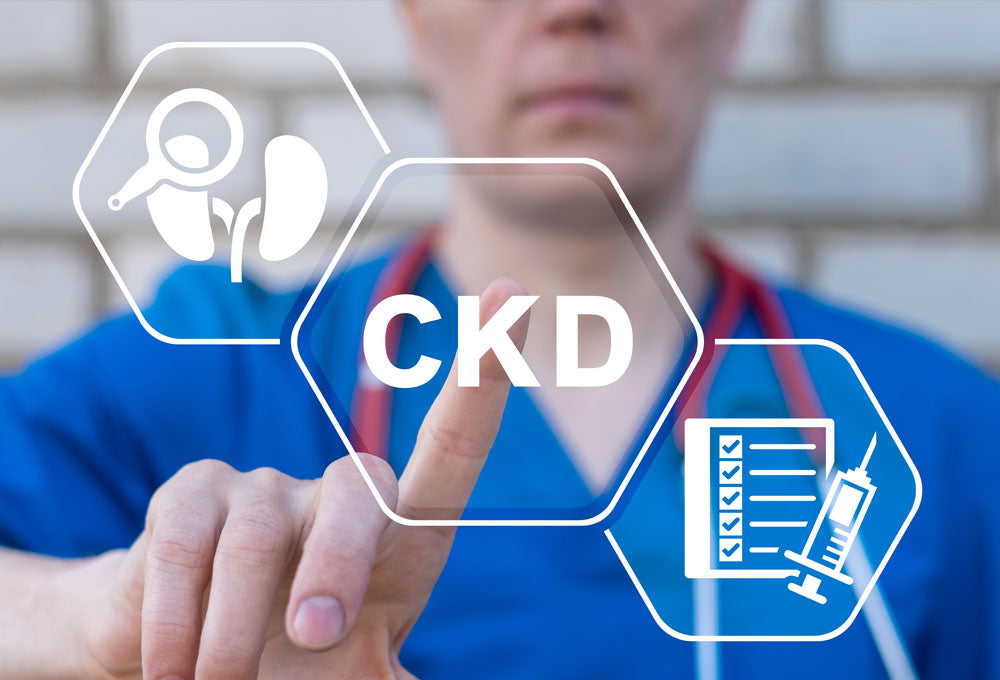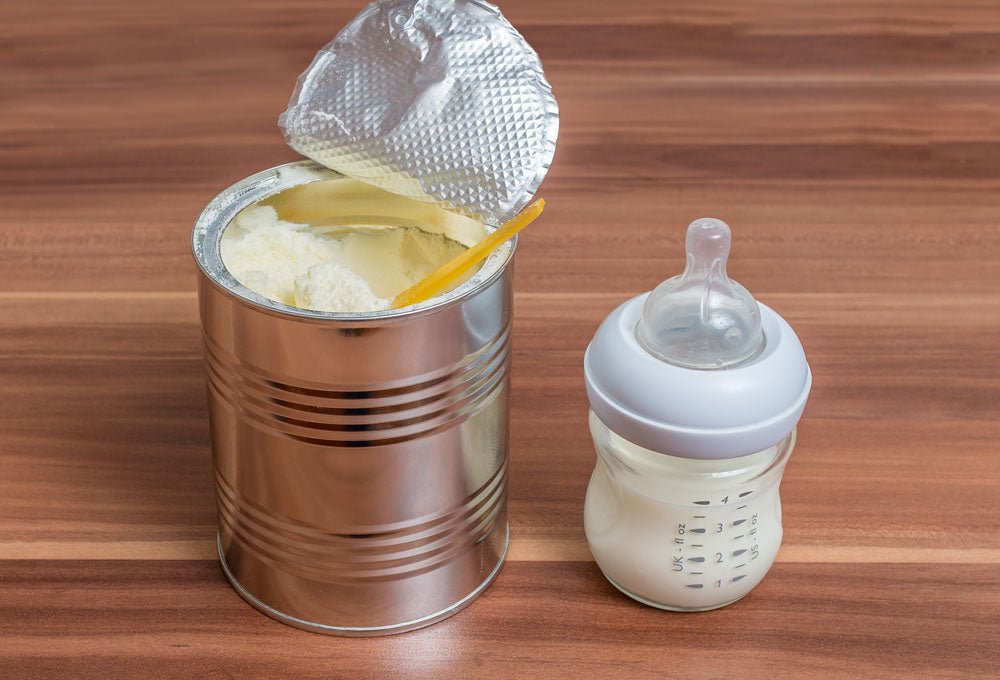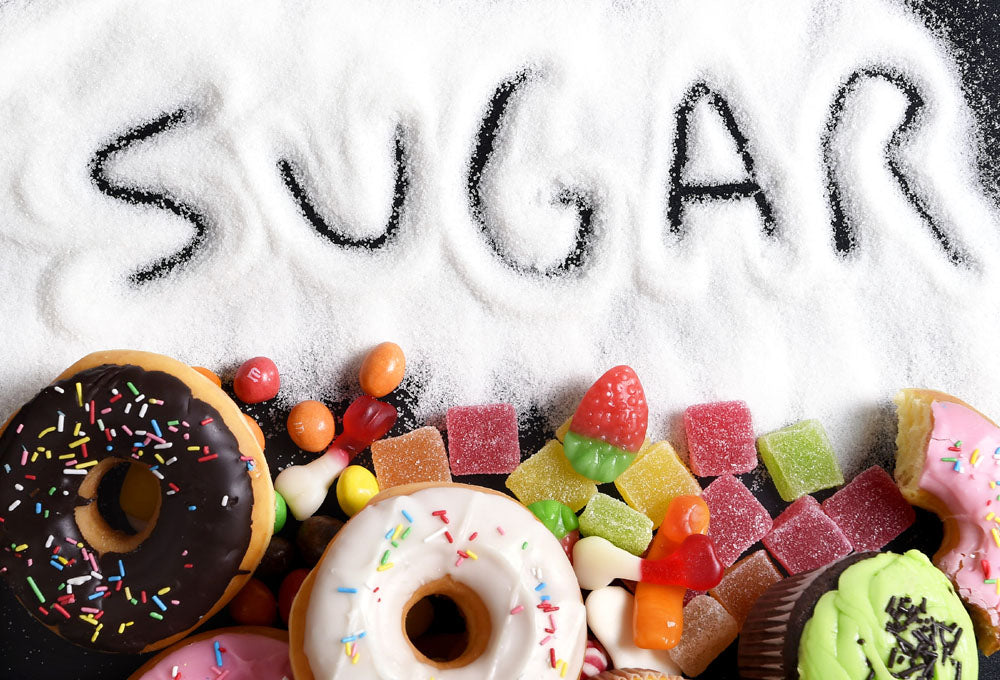What is chronic kidney disease (CKD)
It is thought that CKD affects around 3 million people in the UK and can be defined as having either kidney damage or a low glomerular filtration rate (GFR).
GFR is a blood test that checks how well your kidneys are working. Kidneys have tiny filters known as glomeruli and it are these filters which remove waste and excess fluid from the blood. The test determines how much blood passes through these filters each minute. If it is less than 60ml per minute, this can then be defined as CKD. CKD is classed as five stages with stage 5 being the worst and this is when regular dialysis or transplantation is needed to survive.
What are the symptoms of CKD?
The main symptoms which could indicate to a health professional that CKD needs to be investigated in a patient are as follows:
- Unexplained weight loss and poor appetite.
- Swollen ankles, feet or hands as a result of water retention.
- Shortness of breath.
- Tiredness
- Blood in your urine.
- Increased need and urgency to pee, especially at night.
- Insomnia
- Itchy skin.
What causes CKD?
Two of the greatest risk factors to having CKD are diabetes and high blood pressure. The risk of CKD also increases as we get older and can be more prevalent in certain ethnic communities. For example, it is more common for those who may be South Asian or Afro-Caribbean in origin.
Kidney stones can also lead to CKD and these are caused by a high salt diet.
How can we reduce the risk of getting CKD by changing our diet?
Managing blood pressure is key to reducing the risk of getting CKD and managing this has been really effective in reducing the on-set of CKD. The most effective way to do this is to reduce salt intake on a daily basis. Here are some easy tips on how we can do this on a daily basis or if we are supporting someone who has CKD, how we can encourage them to keep their salt intake low.
- Don’t add salt to food you are preparing.
- Don’t add salt to vegetable or pasta cooking water.
- Use very low salt stock cubes.
- Use reduced salt soy sauce.
- Avoid processed foods such as shop-bought sauces, jars and spice mixes with salt added.
- Avoid fast foods and takeaways.
- Flavour foods with herbs and spices.
- Avoid salty meats such as bacon, ham and salamis.
- Keep salt intake to below 6g of salt a day.
Diabetes and CKD
Diabetes is actually the leading cause of CKD and worldwide, it accounts for 27.5% of new cases each year.
Keeping blood glucose levels under control can really help reduce the onset of CKD. For those who have diabetes, losing weight and stopping smoking is vital.
Tips to manage our weight through changes to our diet:
- Choose healthy foods such as wholegrain rice, pasta and bread.
- Eat more fruit and veg.
- Try some plant-based dishes instead of eating meat daily.
- Choose fish as a healthy option on a menu (unless fried in batter with chips!)
- Reduce the amount of red meat eaten each week.
- Choose more chicken, fish and turkey over red meats.
- Try unsalted nuts as a healthy snack.
- Try healthier fats such as olive oil and rapeseed oil as opposed to lard, butter or ghee.
- Avoid cakes and biscuits as snacks, choose high protein snacks such as yogurts, fruit And veg, nuts, seeds, houmous.
- Drink alcohol sensibly If you take insulin, check the amount of alcohol you can have with your diabetes specialist.
Other things to do to try and manage weight:
Nutrition plays a huge role in reducing the onset of this disease but also, if diagnosed, in the treatment of CKD. Due to there being 5 stages of the disease, if diagnosed early, a healthy diet could have the potential of delaying any more severe symptoms.
If you are concerned about CKD or are caring for someone who is already diagnosed, maintaining a healthy lifestyle is key. Always speak to your GP if you are worried about anything related to your health.
For more support, please visit Kidney Care UK






